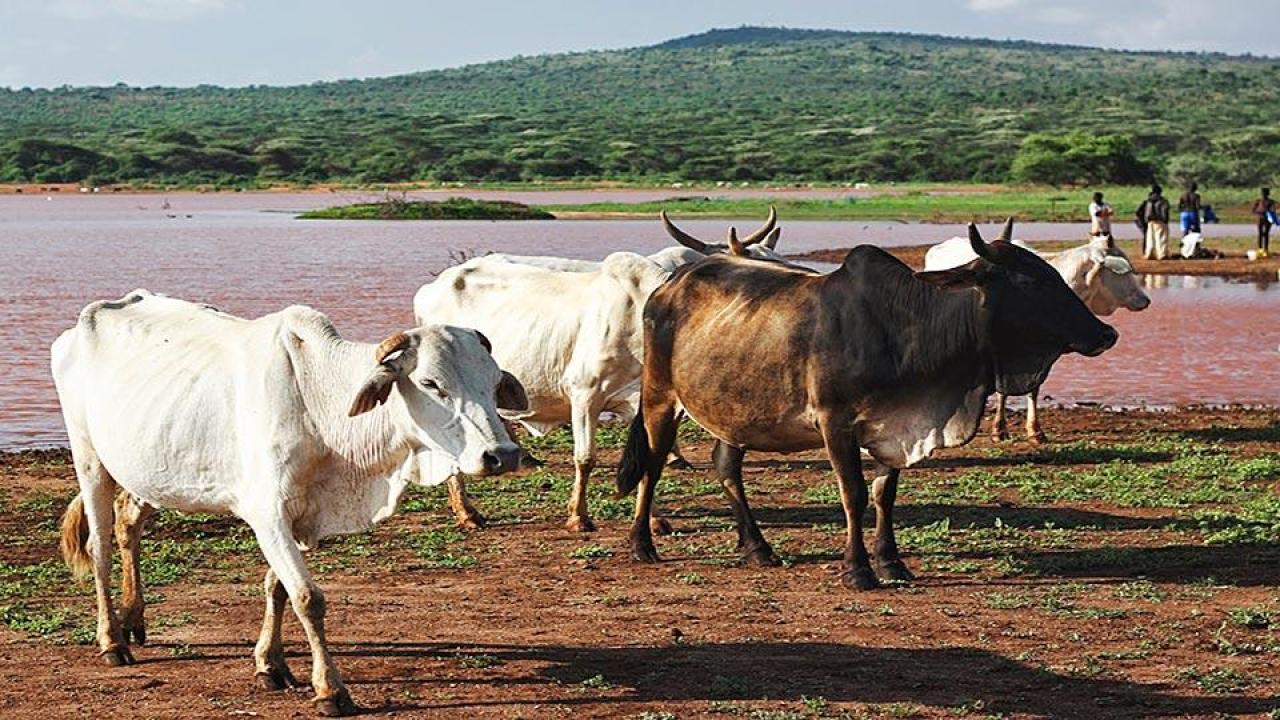
New Project Evaluates Synergies Between Social Development and Social Protection Programs
DAVIS, Calif. — The Feed the Future Innovation Lab for Assets and Market Access has just launched a $1.4 million project in Kenya that uses a randomized, controlled trial (RCT) to evaluate the impacts of combining programs that offer training, support and aid with affordable insurance to reduce chronic poverty.
The new project is led by Michael Carter, a professor of agricultural and resource economics and director of the Feed the Future Innovation Lab for Assets and Market Access at UC Davis, and Andrew Mude from the International Livestock Research Institute (ILRI) in Kenya. The researchers anticipate the project will help create a pathway out of poverty and reduce the need for aid, which Kenya’s government provides each year, even without drought.
“Emergency aid helps people survive, but in general it doesn’t change poverty dynamics,” Carter said. “We are looking into the synergies of helping people get out of poverty and providing a mechanism to keep them from falling back into indigence and becoming next-generation beneficiaries of emergency food aid.”
The Need for Combined Interventions to Reduce Poverty in Kenya
Pastoralist and agro-pastoralist households in northern Kenya are vulnerable to natural disasters and to increasingly unpredictable weather. Seven droughts struck Kenya between 1992 and 2012. In the worst of these droughts, households lost upwards of half of their productive wealth over the course of a few months. Overall, damages from the droughts that occurred between 2008 and 2012 are estimated to have cost US$12.4 billion. The human and economic consequences of shocks of this magnitude are potentially enormous.
Raising the stakes further is the accumulating evidence that severe losses in this region may be irreversible. Recovery does not typically take place, which keeps households impoverished and unable to move forward after a severe drought event that pushes them below a critical minimum wealth threshold.
Finding the Highest-Impact Programs for the Poor
The project, “Can Asset Transfer & Asset Protection Policies Alter Poverty Dynamics in Northern Kenya? A Randomized Evaluation of an Integrated Graduation and Contingent Social Protection Program,” will test the The BOMA Project's graduation program, Kenya’s Hunger Safety Net Programme, or HSNP; and index-based livestock insurance. The BOMA graduation program teaches hard and soft skills, followed by asset transfers to start a business. The HSNP transfer program is one of five cash-transfer programs under Kenya’s national Safety Nets Programme.
The project will investigate the impacts of these programs alone and in combination at the level of individual household outcomes as well as in terms of local poverty measures. A second research goal is to understand the density with which graduation programs like REAP need to be offered. The third and final goal of this research—contingent on obtaining additional funding—is to explore the relative effectiveness of alternative mechanisms for delivering contingent payments to poor and vulnerable households in the wake of drought.
The project will run from February 2017 through September 2021. It is part of the USAID Associate Award that launched the Global Action Network project, which seeks to identify and fill gaps in research on index insurance for global development.
Read the 2/27/17 press release from UC Davis News Service.
Media contact:
Alex Russell, (530) 752-4798, parussell@ucdavis.edu
